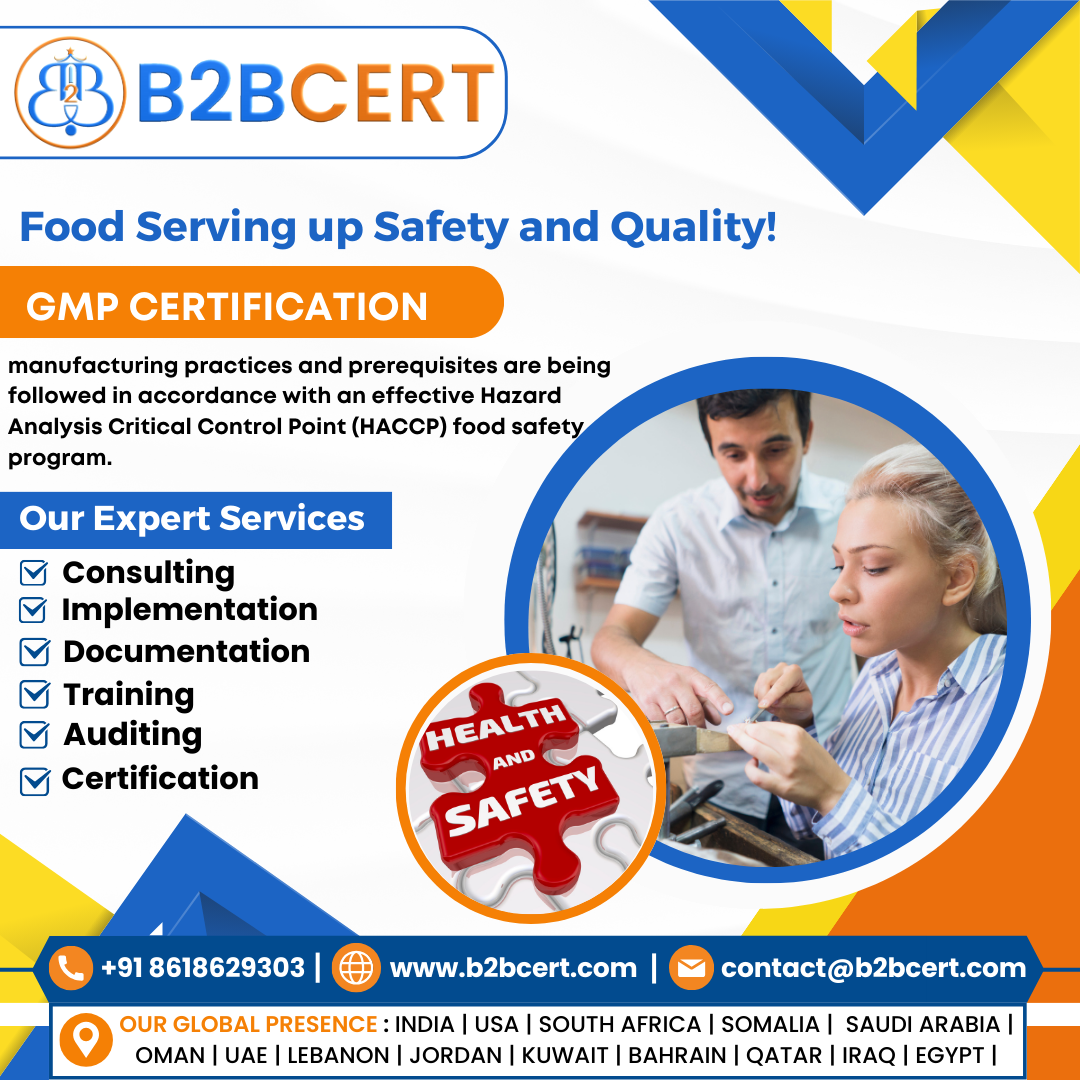What Measures Are in Place to Prevent Contamination by Personnel (e.g., Hygiene, Gowning)?

Contamination is one of the biggest risks in pharmaceutical and food manufacturing environments. Personnel, as the most frequent presence in cleanrooms and production areas, are a primary source of contamination. To ensure product safety and quality, regulatory bodies across the globe enforce Good Manufacturing Practices (GMP), which provide clear guidelines for hygiene, gowning, and overall contamination control.
For companies seeking GMP Certification in Saudi Arabia, understanding and implementing personnel hygiene and gowning protocols is not just a best practice—it’s a necessity. Here's how organizations can mitigate contamination risks caused by human involvement.
1. Personnel Hygiene: The First Line of Defense
Personnel hygiene is fundamental in controlling contamination risks. GMP guidelines require all staff working in manufacturing areas to maintain high levels of personal cleanliness. These practices include:
-
Regular Hand Washing: Employees must wash hands thoroughly with antibacterial soap before entering clean areas and after any activity that could lead to contamination.
-
Prohibition of Jewelry and Makeup: Items like rings, earrings, makeup, or artificial nails can shed particles or harbor microorganisms, so they are strictly prohibited in GMP-controlled zones.
-
Health Screening: Employees with respiratory infections, open wounds, or other health conditions that may pose a contamination risk are restricted from working in clean areas.
-
Training: Ongoing hygiene training ensures that staff understand the importance of their actions and adhere to standard operating procedures.
Companies pursuing GMP Services in Saudi Arabia should prioritize building a culture of hygiene compliance, beginning with robust training and reinforced by continuous monitoring.
2. Gowning Procedures: Creating a Barrier
Gowning is a critical part of the contamination control process. The purpose of proper gowning is to create a physical barrier between the person and the environment, limiting the spread of skin particles, hair, and microorganisms.
-
Gowning Sequence: Personnel follow a strict sequence to wear sterile garments, typically beginning with hairnets, beard covers, and moving to cleanroom gowns, gloves, and footwear. The gowning area itself is divided into "dirty" and "clean" zones to prevent cross-contamination.
-
Gowning Materials: The type of gowning (e.g., disposable vs. reusable garments) depends on the cleanroom classification. Higher-grade cleanrooms require more stringent gowning, such as sterile coveralls and double gloves.
-
Inspection and Monitoring: Supervisors and quality control staff regularly inspect gowning practices to ensure compliance. Garments must be changed or sanitized at specified intervals.
Organizations working with GMP Consultants in Saudi Arabia benefit from expert advice in setting up gowning areas, developing SOPs, and training staff for compliance with local and international GMP standards.
3. Access Control and Zoning
Another measure to reduce personnel-related contamination is the enforcement of access control and zoning. This includes:
-
Restricted Access: Only authorized personnel are allowed into cleanrooms or sensitive production areas.
-
Airlocks and Entry Rooms: These transitional areas ensure that personnel go through all necessary gowning and sanitation procedures before entering.
-
Workflow Optimization: Minimizing unnecessary movement and contact between different zones helps reduce cross-contamination risks.
When working toward GMP Certification in Saudi Arabia, these measures are thoroughly evaluated by auditors to ensure that each zone's cleanliness level is not compromised.
4. Continuous Training and Auditing
Regular training and internal audits are essential for sustaining compliance. Staff should be routinely educated on new procedures, updates in GMP guidelines, and common contamination risks.
Third-party GMP Services in Saudi Arabia often include mock audits and training sessions tailored to a company's specific operations. This external support ensures all personnel understand their role in contamination prevention.
Conclusion
Preventing contamination by personnel is a multi-layered approach involving hygiene, gowning, restricted access, and constant vigilance. For companies seeking GMP Certification in Saudi Arabia, these measures are not optional—they are mandatory components of a compliant, quality-driven operation.
Working with experienced GMP Consultants in Saudi Arabia provides the insight and support necessary to implement effective personnel control strategies, helping businesses meet regulatory standards and protect their products and consumers alike.
- Education
- Course
- Books
- Drawing
- Question
- Film
- Fitness
- Food
- Games
- Gardening
- Health
- Home
- Literature
- Music
- Networking
- Other
- Programming
- Religion
- Shopping
- Sports
- Curriculm
- Wellness


